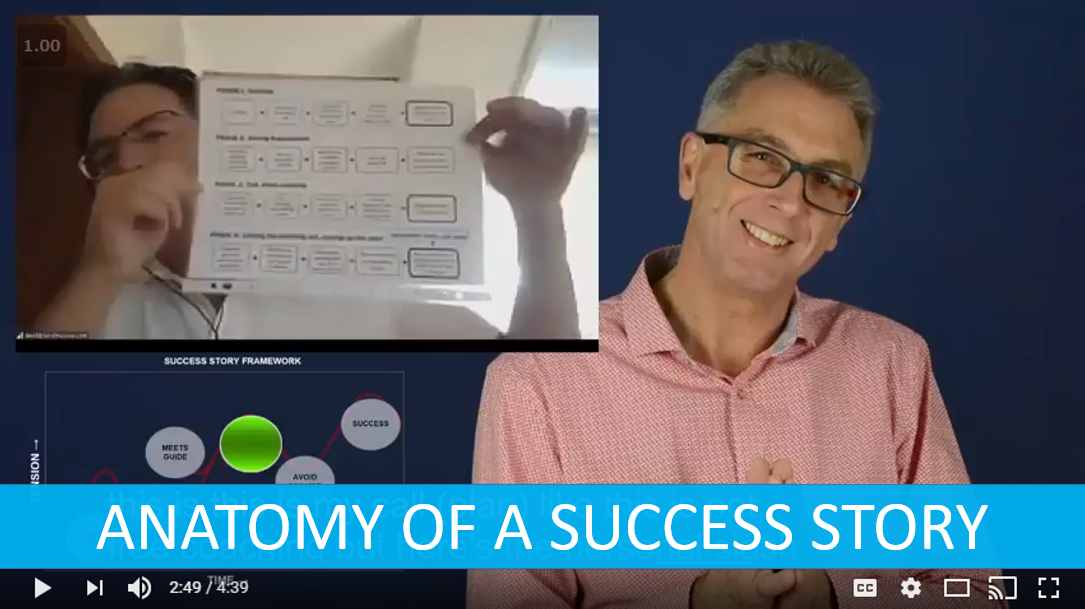
If you can keep your head when all about you are losing theirs and blaming it on you
----- From ‘If’ by Rudyard Kipling ------
In 2011, Mohamed, one of our Story workshop participants, was asked to travel from Egypt to Iraq to represent his company in a dispute meeting with a major Iraqi telecommunications company.
The Iraqi Telco was experiencing serious network failures and the main suppliers, including Mohamed's company, were all pointing the finger at each other.
It was dangerous to travel to Iraq and company security policy required Mohamed to travel by armoured car and dress in full military protective clothing including bullet proof vest.
Alone inside an armoured car en route to Bagdad, Mohamed lifted a bottle of lemonade to his lips to quench his thirst. As the armoured car bounced on the potholed road the lemonade went down his wind pipe and he started to choke.
With the bullet proof vest strapped tightly around his chest, Mohamed panicked. He couldn’t unstrap the bullet proof vest, he couldn’t get the attention of the driver and he couldn’t breathe.
As he fought for breath, Mohamed had a sinking desperate fear that he would die alone inside the armoured car. He even thought to send a text message to his wife with his last few seconds of consciousness.
But eventually he wheezed some shallow breaths and recovered just as the armoured car reached his meeting destination.
Entering a room full of angry, antagonistic suppliers, Mohamed was oblivious to the commotion. He sat calmly and luxuriated in every breath of air, so happy to be alive.
Suddenly accusing voices rounded on Mohamed’s company. It was all his company’s fault!
Wordlessly, Mohamed stood up and went to the whiteboard. The room fell silent. As he sketched the configuration of his company’s technical solution on the whiteboard, Mohamed calmly explained how the network fault could not have been caused by his company’s equipment.
Silence.
“Ok! So it’s not their fault, it must be …” and the room descended back into acrimonious argument.
Mohamed walked back and sat down next to the local manager who turned to him and exclaimed “how did you do that?!”
***
Of course it was Mohamed's newfound existential perspective that allowed him to calmly manage that heated situation.
It's a great story. We could just enjoy it for its perspective and humour but we could also retell it in a similar fractious situation to help gain agreement.
There is no chance of agreement when the opposing sides are highly emotional and it is the role of a sales person to persuasively shift the emotional landscape to a positive one. We call this type of story a 'sales process' story because it can be used to move a sale forward.
Great stories can be re-purposed and it is not necessary that the events happened to you.
____________________________________
Company: Large Telecoms Supply Company
Source:
Told in a Growth in Focus Story Workshop 2017
Story Type:
Teaching
____________________________________
For Story Students
The Setting:
Iraq after the second gulf war
The Complications:
Mohamed nearly choked to death
The Turning Point:
Mohamed recovered and was calm and composed through a vitriolic dispute meeting
The Resolution:
Mohamed resolved the dispute in is company's favour
The Point of the Story:
Perspective makes a difference
How to use this story: This story can be used to calm a situation where disagreements are getting out of hand. It is an example of a sales or business process story. Here is
of a personal story that can be re-purposed for a business situation.
____________________________________







